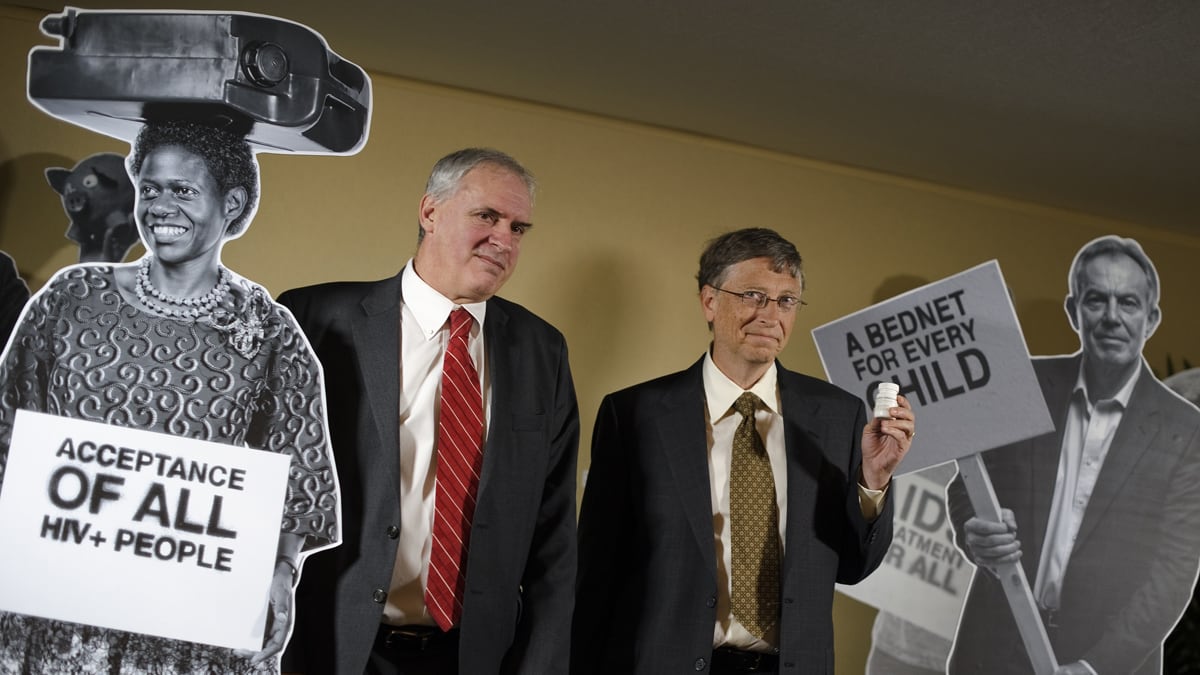Discussions on day two of the World Economic Forum shift away from capitalism as a number of heavy hitters are diverting the spotlight to the world’s most vulnerable economies. Bill Gates opens the day with an interactive session called “Ensuring Food Security,” joined by Nigerian President Goodluck Ebele Jonathan and Jose Graziano da Silva, the new director general of the Food and Agriculture Organization of the United Nations. The delicate issue of the effects of unregulated production in emerging markets will be the focus of a number of sister sessions including “Manufacturing for Growth” and “Pain and Gain."

Rafik Ben Abdessalem, Foreign Affairs minister of Tunisia, heads a provocative debate called “Rethinking Islam in Politics” along with Karen Armstrong of the Charter for Compassion group, Shadi Hamid of the Brookings Doha Center, and Amr Khaled of the Right Star Foundation. Gordon Brown then leads a plenary session called “Africa – From Transition to Transformation” with president Alpha Conde of Guinea, Goodluck Ebele Jonathan of Nigeria and Jacob Zuma of South Africa. Salam Fayyad, prime minister of the Palestinian Authority, and Shimon Peres president of Israel will hold an interactive session led by WEF founder Klaus Schwab entitled “Prospects for Peace in the Middle East.” A televised debate called “The Implications of the Arab Spring” will round out a full day of geopolitical dialogue.
British Prime Minister David Cameron will address the WEF congress before a series of sessions dedicated to preparations and problems on the horizon as London prepares for the 2012 Olympic Games while driving sustainable economic growth.
The hottest debate in Davos on Thursday will come from a series of plenary sessions on Europe. After German Chancellor Angela Merkel’s sobering address Wednesday night where she asked for patience and more time to save the European Union, leaders will be breaking down the touchy issue of the European Union’s relevance and the survival of the euro. Leaders from northern European countries will focus on how to say connected in a “two-speed Europe” while leaders from the southern countries will focus on stimulating stagnant economies.
Aging is also on the agenda in Davos on Day Two, with one panel on “New Models for Ageing Societies” and another on “Averting a Lost Generation.” On the arts and culture front, Japanese American violinist Midori explains how the power of music can change the world and Michael Wolf leads a guided tour of his art exhibition in the Congress Center. Late in the afternoon, Yvonne Ntombizodwa Chaka Chaka will present “Songs of Hope.”
Last but not least, not to forget social media: A fascinating series of sessions on Thursday are designed to initiate dialogue about the threats of social networking. “Artwork through Network” will focus on whether social networking is disrupting the art world.






